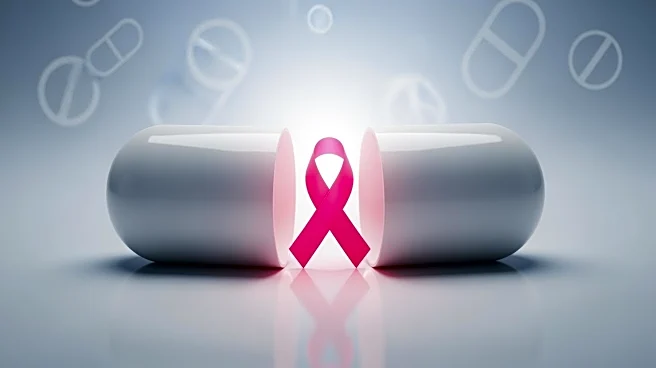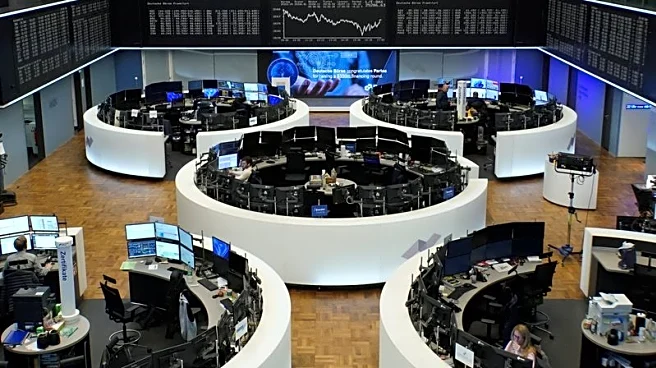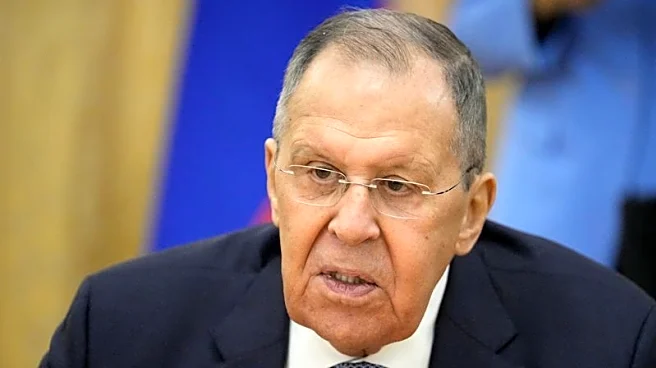What's Happening?
Bangladesh's pharmaceutical industry has significantly reduced the cost of cancer drugs by manufacturing them locally. Previously reliant on expensive imports, the country now produces around 95% of its cancer medications domestically. This shift has been
facilitated by government incentives, including tax waivers on production and raw material imports. Companies like Beacon Pharmaceuticals and Incepta have played key roles in this transformation, offering drugs at a fraction of their previous costs. For instance, the price of the lung cancer drug Erlonix has dropped from Tk7,500 to Tk750 per unit.
Why It's Important?
The local production of cancer drugs in Bangladesh has made life-saving treatments more affordable and accessible, particularly for low-income patients. This development not only saves foreign currency but also strengthens the country's healthcare infrastructure. The reduction in drug prices is crucial in a country where cancer cases are rising, with over 167,000 new cases annually. By reducing dependency on imports, Bangladesh is better positioned to meet its domestic healthcare needs and potentially expand into export markets.
What's Next?
Bangladeshi pharmaceutical companies are gearing up to produce advanced cancer treatments like biosimilars and immunotherapy drugs. These efforts are expected to further enhance the country's capacity to provide cutting-edge cancer care. The government is encouraged to continue supporting this growth through policy measures that promote research and development in biosimilars and active pharmaceutical ingredients (APIs).
















